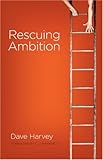Why Managers Matter
We’ve seen that managers are critically important for several reasons.
First, managers are the key to helping each employee turn their talent into the most effective performance for the organization.
Second, managers trump companies. Even if someone loves the mission and vision of an organization and resonates with its top leadership, if their immediate manager is poor, their job satisfaction will be diminished and their effectiveness will be reduced.[1]
Third, managers themselves become more effective when they have great managers. If we were to ask “what do great managers need?,” the answer would be: “Great managers.” Great managers need great managers.
The Importance of Creating a Climate for Great Managers
But over all this, great managers exist within the context of the overall organization. Thus, the organization plays a substantial role in producing and retaining great managers by creating a climate that will be more conducive or less conducive to this.
In particular, an organization creates a climate that is either favorable or disfavorable to great managers through its web of policies, practice, and language.
Policies that are restrictive, for example, work against the manager who aims to liberate and empower his employees. Policies that affirm the fundamental value of autonomy, on the other hand, reinforce and further the efforts of great managers. The efforts of great managers are amplified or diminished by the overall company environment.
How to Create a Climate for Great Managers
Marcus Buckingham outlines four things that senior management can do to create a climate for great managers.[2] I will outline his four and then add two of my own.
1. Keep the focus on outcomes
Buckingham writes: “The role of the company is to identify the desired end. The role of the individual is to find the best means possible to achieve that end. Therefore strong companies become experts in the destination and give the individual the thrill of the journey.”[3]
He then gives the following practical suggestions for keeping the focus on outcomes:
- Define each role in outcome terms as much as possible.
- “Find a way to rate, rank, or count as many of these outcomes as possible. Measurement always improves performance.”
- For roles relating to customers, “the four most important outcomes for a customer are accuracy, availability, partnership, and advice.”
- “Hold managers accountable for their employees’ responses to the twelve questions.” (See the document “Employee Engagement” for the list of the twelve questions and their meaning.)
2. Value world-class performance in every role
Every role that is performed at excellence deserves respect and has its own nobility. In order to create heroes in every role, consider:
- Setting up graded levels of achievement in as many roles as possible. “Identify specific criteria for moving up from one level to the next.” “Take every level seriously.”
- Creating broad banded compensation plans.
- Celebrating “personal bests.” “Many people like to compete with themselves. Design a system so that each person can keep track of his or her performance monthly or quarterly. Use this system to celebrate monthly or quarterly ‘personal bests,’ as and when they occur. A growing number of ‘personal bests’ means a growing company.”
3. Study your best
“Strong companies learn from their very best. Internal best practice discovery is one of their most important rituals.”
- Consider building a talent profile for each role, based on studying your best in each role.
- “Revise all training to incorporate what you have learned about excellence in each role.”
- “Set up an internal ‘university.’ The main function of this university should be to provide a forum for showcasing how your best, in every role, do what they do. As far as is possible, every employee should be exposed to the thinking, the actions, and the satisfactions of your best, in every role.”
4. Use the language of great management
“Language affects thinking. Thinking affects behavior. Companies must change how people speak if they are to change how people behave. Strong companies turn the language of great managers into the common language.”[4]
- “Teach the Four Keys of great managers. In particular emphasize the difference among skills, knowledge, and talents. Make sure people know that all roles, performed at excellence, require talent, that a talent is any recurring pattern of thought, feeling, or behavior, and that talents are extraordinarily difficult to teach.”
- “Change recruiting practices, job descriptions, and resume qualifications to reflect the critical importance and the broader definition of a talent.”
- “Revise all training content to reflect the differences among skills, knowledge, and talents. A great company is clear about what can be trained and what cannot.”
- “Remove the remedial element from training. Send your most talented people to learn new skills and knowledge that can complement their talents. Stop sending less talented people to training classes to be ‘fixed.’”
- “Give every employee the benefit of feedback….[But] stop using [any specific tools] if they are focused on identifying what needs to be fixed.”
- “Start the great managers performance management routine.”
5. Teach on the nature of management
This is an extension of Buckingham’s third and fourth points. We should teach managers specifically what it means to be strengths-based, what management is at its core (turning talent into performance), and how to implement the four keys.
6. Create systems and structures that embody these principles
The principles of strengths-based, effective management need to be woven in to the fabric and systems of the organization.
In this regard, some of the key systems that we are seeking to implement at Next include: Strengths-based hiring, strengths-based performance management, strengths-based career development, talent profile, strengths based training, etc.
Notes
[1] See Buckingham, First, Break All the Rules, pp. 32; 34-36.
[2] See First, Break All the Rules, pp. 236 – 238. Buckingham points out convention wisdom, which holds that
[3] First, Break All the Rules, 236.
[4] First, Break All the Rules, p. 237.


 Here are some really amazing
Here are some really amazing